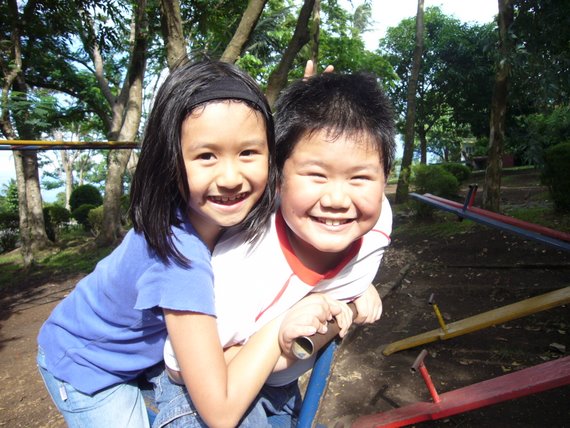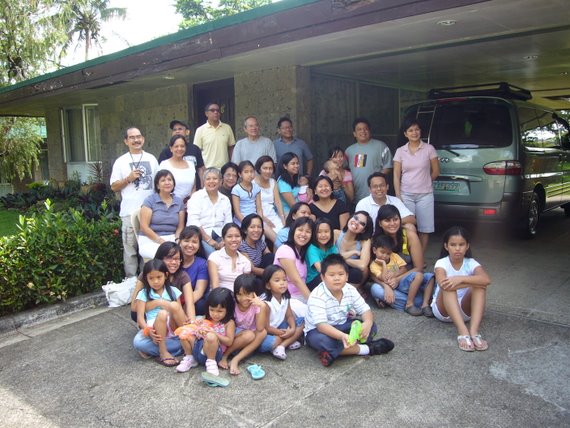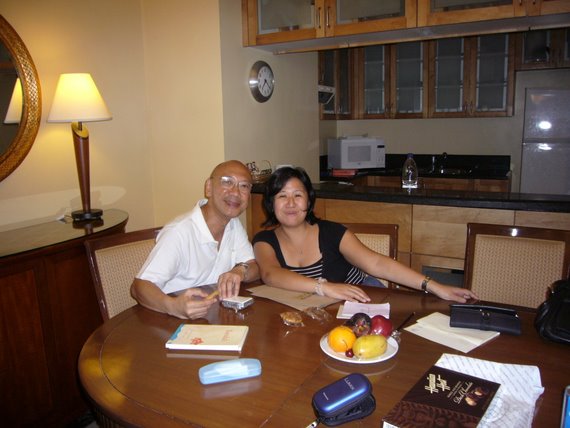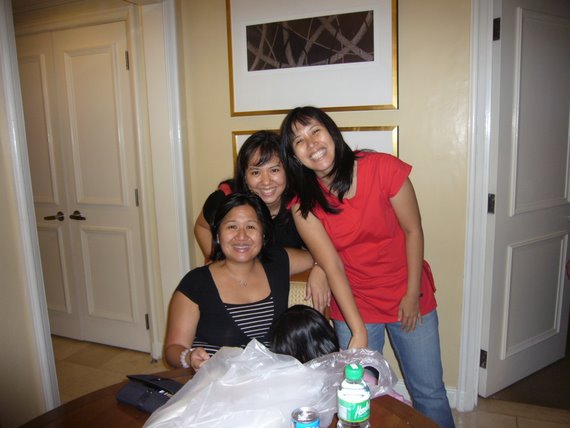Pardon my going on about accupuncture. But it really is amazing. My accupuncturist, a Chinese physician, holds clinic on the second floor of an HDB commercial complex in Chinatown and refuses to give appointments. "Come when you come," she shrugs.
She is a card, a real character - and I warmed to her in the same way I find myself inclining toward quirky women. She takes cash only. She and her receptionist have a very giggly schoolgirlish relationship. And although her English is on the elemental, primordial side - she has that winning instinct of making herself very easily understood.
Yesterday, perhaps as a result of a difficult week, I was inspired to make time to escape to her for an hour. I got there at 11:30, blissful that the clinic was empty and she could see me right away. I went through the restorative cupping along my entire spine and the exhilerating needling and she gave me unlabelled pills to take - so that I could get "an - bocked".
She also showed me (with the help of a rubber and plastic model) that the human ear is
exactly like a human fetus. How great is that? Last night, once again, I slept like a baby and rose this morning with verve and energy - completely ready for doctor's appointments, a hundred errands, writing homework and choir practice.
Am so going again next week.
Saturday, February 03, 2007
Who are the Van der Luydens
Edith Wharton's Age of Innocence is a novel about New York society as most of her novels were. To put it bluntly, who is in, who is out, who are the right people and who are the wrong people. And "right" seems to have no other discernable meaning beyond that of shared family and or socio-economic background - not necessarily shared interests, world views or humour.
The explores what happens when someone wants to leave the "right" people, deciding that he will no longer adhere to the usual conventions of who is right and who is wrong, but simply be with the person he wants to be with - in fact be himself, the person he wants to be. Of course, he is thwarted in the end. The book strikes a real chord with me every time I read it, because of its parallels with Pinoy society - and perhaps most especially, Pinoy society outside of the Philippines.
And while the whole Ellen Olenska-Newland Archer-May Wheeland triangle is the central plot, certain details and sub-plots have taken permanent residence in the way I understand social patterns today. The Van der Luydens, in Wharton's world, are an older couple whose approbation and estimation is valued, whose opinion is sought even though they studiously make their presence quite scarce as Ellen Olenska intimates, in part perhaps to ensure
that value.
It can be a tremendously amusing past time to characterise real people according to the roles of characters in a Wharton novel. Who is the Ellen Olenska who finally and irrevocably turns her back on the conventional norms, preferring instead to live life according to her own choosing despite the loss of a love affair? Who is the Newland Archer who struggles to with his desires for a different kind of life but is too trapped in the rules and norms of the society he himself has helped create. Who is the May Wheeland who has no other thought nor interest beyond what she has been taught to value and find worthy of attention. And who, who are the Van der Luydens?
One of the many wonderful things about great literature is the truth that it lends to what would otherwise be mundane, fairly ordinary life.
The explores what happens when someone wants to leave the "right" people, deciding that he will no longer adhere to the usual conventions of who is right and who is wrong, but simply be with the person he wants to be with - in fact be himself, the person he wants to be. Of course, he is thwarted in the end. The book strikes a real chord with me every time I read it, because of its parallels with Pinoy society - and perhaps most especially, Pinoy society outside of the Philippines.
And while the whole Ellen Olenska-Newland Archer-May Wheeland triangle is the central plot, certain details and sub-plots have taken permanent residence in the way I understand social patterns today. The Van der Luydens, in Wharton's world, are an older couple whose approbation and estimation is valued, whose opinion is sought even though they studiously make their presence quite scarce as Ellen Olenska intimates, in part perhaps to ensure
that value.
It can be a tremendously amusing past time to characterise real people according to the roles of characters in a Wharton novel. Who is the Ellen Olenska who finally and irrevocably turns her back on the conventional norms, preferring instead to live life according to her own choosing despite the loss of a love affair? Who is the Newland Archer who struggles to with his desires for a different kind of life but is too trapped in the rules and norms of the society he himself has helped create. Who is the May Wheeland who has no other thought nor interest beyond what she has been taught to value and find worthy of attention. And who, who are the Van der Luydens?
One of the many wonderful things about great literature is the truth that it lends to what would otherwise be mundane, fairly ordinary life.
Subscribe to:
Comments (Atom)
Kids on break

So what are you going to do about it?
Reminder: Buy fruit

Likewise, Quintosians rule

on with family business
FLASHBACK MANILA

Isang Sandali
Sisterhood rules

Here's to being the best we can be!
Apparently, this is me. Now which card are you?

You are The Wheel of Fortune
Good fortune and happiness but sometimes a species of intoxication with success
The Wheel of Fortune is all about big things, luck, change, fortune. Almost always good fortune. You are lucky in all things that you do and happy with the things that come to you. Be careful that success does not go to your head however. Sometimes luck can change.
What Tarot Card are You?
Take the Test to Find Out.